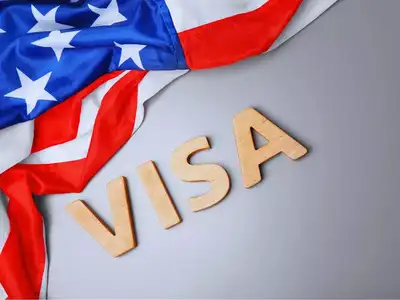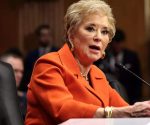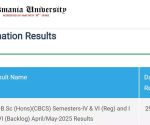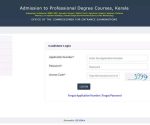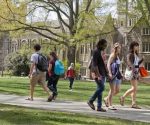Trump administration halts student visa interviews amid widening social media probes – Times of India

The United States has built its global dominance in higher education on a steady influx of international students who drive academic excellence and inject billions into university coffers and local economies. This critical lifeline of global talent, however, is facing an unprecedented assault. The Trump administration has abruptly ordered a worldwide freeze on all new student visa interview appointments. This drastic measure, coupled with an impending expansion of invasive social media screenings, signals a sharp and unforgiving reversal in America’s immigration and educational policies. The implications are far-reaching: years of academic collaboration and innovation are now at risk, alongside the financial stability of institutions that depend heavily on foreign tuition dollars. The country’s reputation as the foremost hub for global scholarship teeters on the brink of serious erosion.
The economic and academic fallout: STEM fields and university budgets in peril
International students play a critical role in sustaining STEM education in the US, fields that underpin the country’s technological edge. With a significant portion of these students coming from India and China, their absence would leave a gaping void in mathematics, computer science, and engineering programs. Institutions such as New York University, Columbia, and Northeastern heavily depend on these students, who often pay full tuition, thereby subsidizing scholarships for domestic peers. The visa freeze threatens to precipitate severe financial shortfalls and diminish the intellectual vitality that distinguishes US higher education on the world stage.
Political agendas and campus culture wars fuel visa crackdown
The visa suspension is deeply intertwined with the administration’s broader political objectives, particularly its efforts to stifle campus activism deemed “disruptive” or politically contentious. Following the arrest of Tufts University doctoral candidate Rümeysa Öztürk, linked to pro-Palestinian activism, Rubio declared intentions to deny visas to students involved in such movements. This politicization of immigration policy weaponizes visa controls to police ideological conformity on campuses, escalating tensions in an already fraught cultural landscape.
Legal battles and the uncertain future of international education in the US
Beyond visa restrictions, the administration has mounted legal and financial offensives against universities seen as defiant. Attempts by the Department of Homeland Security to bar Harvard from enrolling new international students, halted by federal courts, alongside efforts to rescind millions in federal funding, underscore a willingness to deploy multifaceted pressure. Justice Department civil-rights attorney Leo Terrell’s vow to pursue “massive lawsuits” against institutions like the University of California system signals a sustained, aggressive campaign. As these confrontations escalate, the future of international education in the US hangs in the balance, threatening to transform the nation’s universities from global leaders into battlegrounds of cultural and political conflict.
Universities brace for fallout
Institutions such as New York University, Northeastern University, and Columbia—each hosting tens of thousands of international students—face profound disruption. These students frequently pay full tuition, subsidizing financial aid for domestic students. A slowdown or freeze in visa issuance risks defunding universities and fracturing the intellectual fabric that has long distinguished US higher education.
Heightened screening: A double-edged sword
The current visa vetting process is already comprehensive, requiring proof of academic merit, financial solvency, and intent to return home after studies. Rubio’s directive to halt new appointment scheduling “in preparation for an expansion of required social media screening and vetting” adds a new layer of scrutiny. The State Department cable, reported by Politico, states interviews already scheduled will proceed, but new applicants face an indefinite freeze pending further guidance.
Political underpinnings and broader implications
This visa suspension follows a series of confrontations with universities accused of harboring or enabling antisemitism and political dissent. Rubio previously hinted at harsher restrictions after the arrest of Tufts University doctoral candidate Rümeysa Öztürk, detained amid allegations tied to pro-Palestinian activism. Rubio declared that visas would be denied to applicants participating in disruptive campus movements.
The administration’s legal offensive widens
The crackdown extends beyond visa policies. The Department of Homeland Security recently attempted to bar Harvard from enrolling new international students—a move halted by a federal judge—and is seeking to terminate $100 million in federal contracts with the institution. The Justice Department’s civil-rights attorney Leo Terrell vowed an aggressive legal campaign against universities like the University of California system, promising “massive lawsuits” to counter what the administration views as campus insubordination.
Voices from the debate
Amid mounting controversy, supporters of the vetting process emphasize national security and economic benefits. Businessman and Trump ally Kevin O’Leary praised international students as “extraordinary” but advocated for rigorous background checks, arguing the US should retain only those who contribute directly to innovation and job creation.Conversely, university officials and advocates warn that the administration’s approach risks isolating the US from global talent pools and undermining academic freedom. They caution that the long-term consequences could damage America’s reputation as a global leader in education and research.
The road ahead
As the Trump administration tightens the visa pipeline, universities and students alike face an uncertain future. Whether this hardline stance will prevail or be challenged successfully in courts remains to be seen. What is clear is that the battle over foreign students, once a niche issue, has become a flashpoint in the broader cultural and political conflict enveloping American higher education.











